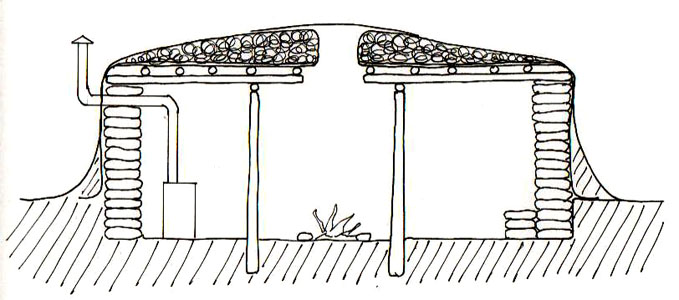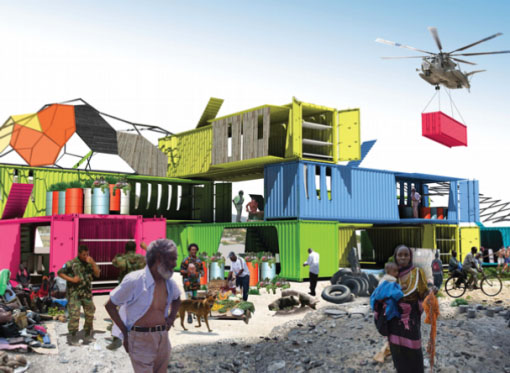The Internet has been vibrating along with the earth since the great quake in Haiti, and I have received quite a few emails responding to this catastrophe, often with suggestions about ways to assist the Haitians. I'll quote from one particularly thoughtful response:
"I would like for you and your colleagues together to present our president (probably through USAID) with a proposal for rebuilding Haiti with earthbag and other environmentally sustainable technologies. Such a project would serve the dual purpose of providing affordable, earthquake / hurricane resistant housing for Haitians as well as to advance the global shift toward a more sustainable green paradigm by example. Due to this humanitarian catastrophe, both the monies and the political will for such a project are at their peak. No better opportunity exists for the Haitian people to receive durable, affordable housing in the wake of this disaster and no better opportunity may be seen in our life times to demonstrate the utility and affordability of earthbag construction to the world and our posterity."
In response, I wrote the following:
The plight of Haitians in the wake of the earthquake is heart-wrenching in the extreme. These long-suffering people must now endure even greater hardship. It doesn't seem fair, but life rarely does. How can those of us who are more fortunate in other parts of the world assist them?
I have been following the blog of Father Marc Boisvert at pwojeespwa.blogspot.com; he runs an orphanage outside of Port-au-Prince, where their facility was undamaged, but where they must deal with lack of fuel, electricity, and adequate food, and with the suffering of friends and family members. They are expecting over a hundred new orphans to arrive from the city. Of course they can use all the money that might be sent to them (and I encourage you to visit their Web site www.freethekids.org and make a donation). Marc often ends his blog posts with "Keep us in your prayers."
I first found out about this orphanage because they had built an earthbag house and were promoting this ecological way of building. You can see a description of their earthbag project at earthbagbuilding.com. There are many reasons to recommend earthbag building in this impoverished country, and resistance to seismic events is among them. Just how resistant earthbag housing might be to earthquakes is not known for sure. Very little testing has been done to prove this one way or another. The initial seismic tests done at CalEarth and other places are encouraging, but not conclusive. Some members of Engineers Without Borders are currently gearing up to do some more testing, so we will hopefully know more in awhile. This technology is still in its infancy, so there is much more to learn about its potential.
 Earthbag housing can be used for emergency shelter, and we have posted a number of possible options, including one proposal that Dr. Owen Geiger and Patti Stouter assembled to present to the UN. This sort of emergency housing has the advantage over tents and other immediate structures in that it can often be used and improved over time to become more permanent.
Earthbag housing can be used for emergency shelter, and we have posted a number of possible options, including one proposal that Dr. Owen Geiger and Patti Stouter assembled to present to the UN. This sort of emergency housing has the advantage over tents and other immediate structures in that it can often be used and improved over time to become more permanent.

Another kind of housing that can withstand practically any sort of catastrophe are shipping containers that are converted to dwelling places. These steel shells have become surplus items at many ports around the world because of trade imbalances. There have been some very innovative designs for incorporating these modular units into quite livable spaces (see my article on containers for home modules at greenhomebuilding.com). I participated in assembling a proposal to the UN for arranging this concept to be employed in Haiti. Here is another proposal in the same direction at clemson.edu . Such structures do need to be insulated to make them livable in most climates, but this is possible and can be done with earthbags filled with a variety of materials.
I agree with you that in some ways the devastation in Haiti does present an opportunity to rebuild with green sustainable principles, and I hope that this can be manifested. We each can do our part.